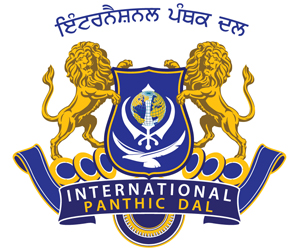Eight men on horseback chase a ball on a gorgeous, sunny winter’s afternoon at the Jaipur Polo Grounds in the Indian capital, Delhi.
The action at Saturday’s game was fierce, fast and dust-raising.
The British army team was playing the Sherdils (or Lionhearts) – comprising members of the Sikh regiment of the Indian army – for the annual Saragarhi Challenge Cup.
The game commemorates the 1897 battle of Saragarhi, during which 21 Sikhs died defending a British army post from 10,000 Afghan and Pakistani tribesmen. The battle took place in what is now Khyber-Pakhtunkhwa province in Pakistan.
The battle is little-known, but is considered by some military historians as one of history’s great last-stands.
The Sikhs rejected calls to surrender and repulsed numerous attacks, killing scores of attackers. The post was finally overrun and all the Sikhs died before a relief column could arrive. They all won gallantry medals.
The cup was instituted in 2010 by the UK-based charity, the Anglo Sikh Heritage Trail, and the inaugural edition in London had Prince Charles as the chief guest.
‘Legacy and culture’
On Saturday, the cup came to India for the first time and India’s junior minister for external affairs, Praneet Kaur, was the chief guest and handed the trophy to the winning team.
The Sherdils won the match 7-3 with captain, Col Navjit Singh Sandhu, scoring three goals.
The winning team Sherdils receive the trophy The winning Sherdils receive the trophy
“It was a good game, very fast, we got an early advantage at 3-0 and then they found it difficult to catch up,” Col Sandhu told the BBC after the match.
Col Sandhu, who has been playing polo for 16 years, said it was special to play the challenge as “it commemorates a historical battle”.
“It gives you pride in your legacy and culture.”
Col Simon Ledger, chairman of the British Army Polo Association, said it had been a “perfect day” to play polo.
“The match is a reminder that the Sikh community is brave and resourceful,” he said.
Maj Rupert Lewis, who played for the British Cavalry, said: “The Sherdils gave us a tough time. We are friends off the field, but it is stiff competition on the ground.”
The tournament drew a full house of supporters but perhaps had less of the glamour than polo attracts in the UK.
There were no fancy bonnets or fedoras and, except for a few dresses and gowns, most of the women attending wore casual jeans and jackets.








